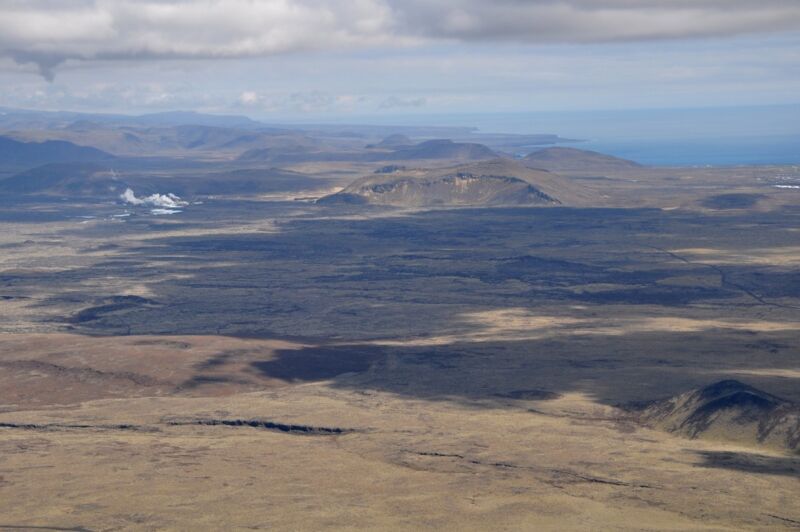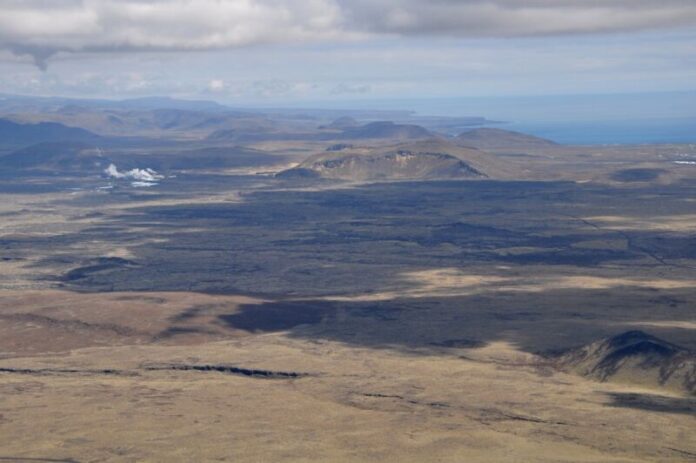
Enlarge / The Reykjanes Peninsula in Iceland is mostly a barren waste of lava fields. (credit: Vincent van Zeijst/CC BY 3.0)
Intensifying seismic activity these past few weeks along Iceland's southwestern Reykjanes Peninsula—marked by tens of thousands of earthquakes, as many as 1,400 within one 24-hour period—has experts warning of a likely volcanic eruption at any time. While such activity is typically monitored by seismometers, seismologists at Northwestern University are also listening to the data collected by the region's Global Seismographic Network station using an app they developed a few years ago called Earthtunes.
With the app, those earthquakes can sound like slamming doors or hail pelting a window or roof. “The activity is formidable, exciting, and scary,” said Suzan van der Lee, a Northwestern seismologist who co-developed Earthtunes. “Iceland did the right thing by evacuating residents in nearby Grindavik and the nearby Svartsengi geothermal power plant.”
Sonification of scientific data is an area of growing interest in many different fields. For instance, several years ago, a project called LHCSound built a library of the “sounds” of a top quark jet and the Higgs boson, among others. The project hoped to develop sonification as a technique for analyzing the data from particle collisions so that physicists could “detect” subatomic particles by ear. Other scientists have mapped the molecular structure of proteins in spider silk threads onto musical theory to produce the "sound" of silk in hopes of establishing a radical new way to create designer proteins. And there's a free app for Android called the Amino Acid Synthesizer that enables users to create their own protein "compositions" from the sounds of amino acids.
Read 6 remaining paragraphs | Comments
Ars Technica - All contentContinue reading/original-link]




